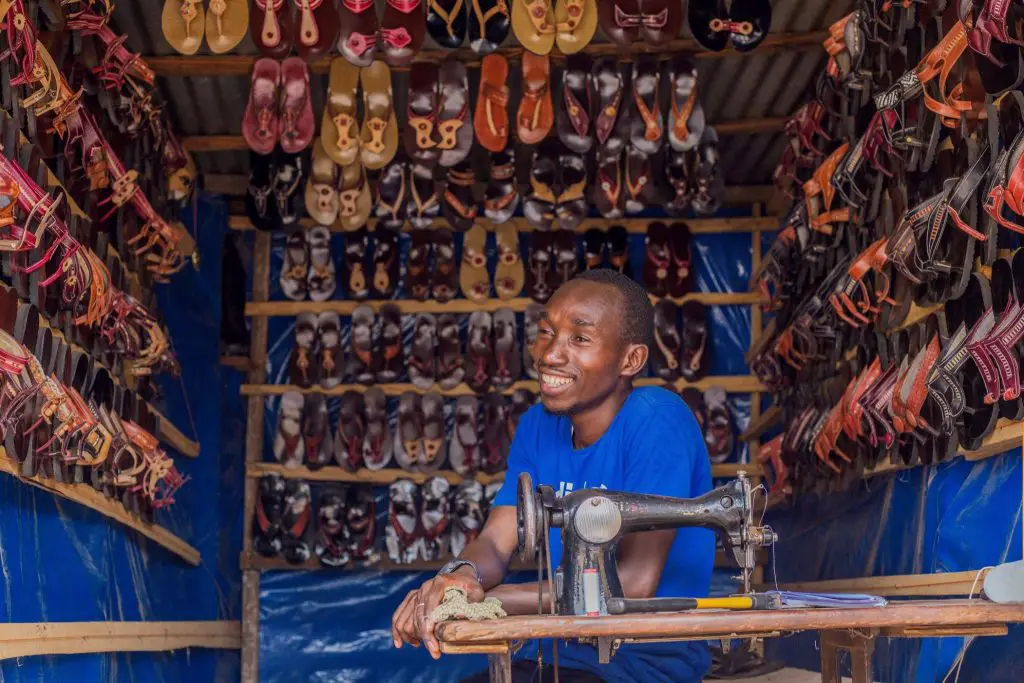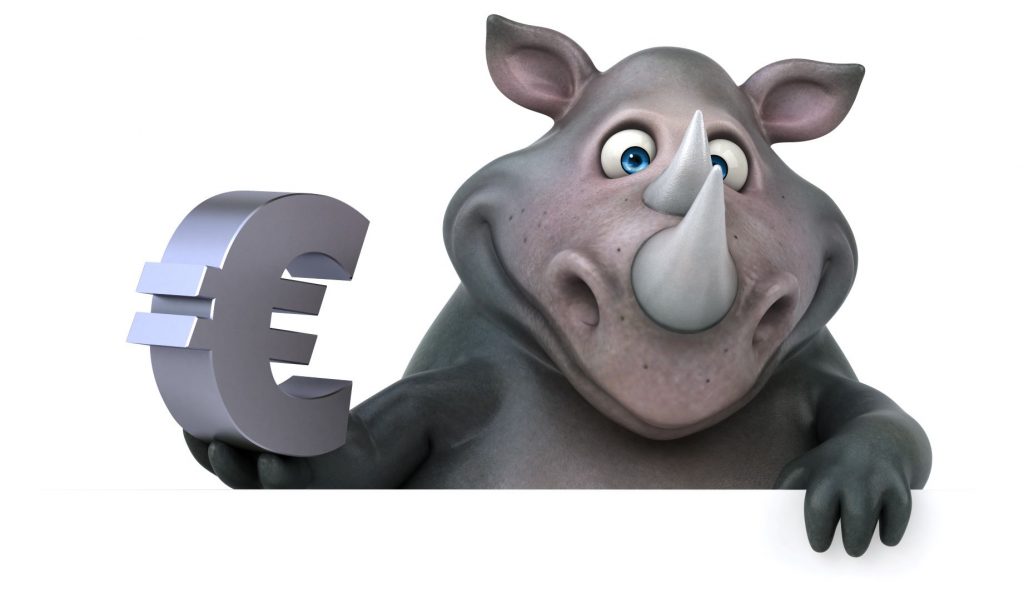- Investment opportunities in South Sudan’s emerging gold industry
- Family planning drive in Kenya gets 450,000 self-injectable contraceptive doses from UK
- AfDB commits $2 billion to revolutionise clean cooking in Africa, save forests
- The harsh realities of family laws for African women revealed
- Kenyan home buyers shift preferences, seek affordable housing despite market downturn
- How startup Yeeo is shaping the future of business contacts with eco-friendly innovation
- Stakeholders in Nairobi seek to unlock Kenya’s green jobs potential
- Alarming surge in online child exploitation sweeps Africa
Browsing: premium
It is legal to say the world as we know it has been kidnapped by the novel coronavirus, which has left thousands dead and millions who have contracted it. The United Nations Industrial Development Organization (UNIDO) confessed that “the economic crisis unleashed by the outbreak of COVID-19 is hurting economies, regardless of income level”.
According to its latest numbers, UNIDO indicated that both lower and upper–middle-income countries have been significantly impacted by COVID-19, with an average loss in industrial production across countries, standing at 18 per cent (high-income), 24 per cent (upper middle-income) and 22 per cent (lower middle-income).
The pandemic has hurt a lot of economies but more importantly has taken a toll in some developing countries, such as Kenya and Tanzania who rely on travel and tourism dealing a huge slap on foreign receipts.
The World Bank …
Financial exclusion remains a major issue especially in the informal sector. Expansion of services in this area by banks will not be very easy because of the special situation and needs. This article suggests that while structural solutions are expensive and nevertheless must be pursued, banks should think of designing a process response to the problem, drawing on the experiences and practices of the traditional lenders.
Much progress has been credited to money transfer services that were introduced by mobile network operators (MNOs) in 2008. These services are also supported by a network of agents across the country offering a range of services and products, whereas the traditional bank-dominated financial system remains mostly urban-based and is still unaffordable for the vast majority of Tanzanians and their businesses.
Where ordinary citizens once had to enter into risky arrangements to send money urgently to their families, mobile money services have almost eliminated …
Since the September 1995 United Nations’ Fourth World Conference on Women, one would think that the world would have achieved gender parity in all areas and sectors.
However, while there have been important gains over the years, there are still areas that need more work and revised strategies to reduce the gap and meet the target.
Following the world largest global gathering on gender equality in Beijing, China, 25 years ago, member states agreed that the meeting would be a basis for “comprehensive and transformative agenda for gender equality and the empowerment of women and girls.”
A recent report: Gender Equality: Women’s Rights in Review 25 years after Beijing aimed at taking stock of progress has concluded that the implementation has flopped short of the initial potential.
The review by the United Nations Women (UN Women), notes that although the last 25 years have recorded growth in some areas …
One of the oddest by-products of the Covid-19 pandemic is how it has affected many investors’ attitude to risk. Over the past three months nearly every client I have spoken to has become more risk-tolerant. Cautious investors have become balanced investors. Balanced investors have become risk-tolerant. And the risk-tolerant are all in the casino putting their life savings on zero at the roulette table. Why?!
We have seen recession before, stock markets correct cyclically and we are now very accustomed to very low interest rates over very many years. And I have never seen so much money going into Initial Public Offerings.
Risk is inherent in everything we do. It is impossible to live a risk-free life – but it is possible to mitigate risk to a point where it is non-existent. However, to eliminate risk in life might mean that life then was not worth living. Particularly in these …
Risk asset prices rebounded globally with the benchmark MSCI (Morgan Stanley Composite Index) World trimming first quarter losses to -6.6% at the end of the first half of the year. The steady state in the global financial markets has been anchored on the accommodative policies in the developed economies and easing of containment measures in some pockets across the globe.
Some equity markets such as in the emerging world have recouped back the first quarter losses while frontier markets are trailing 18.1% from the start of the year levels. US Dow Jones Industrial Average benchmark that tracks the 30 largest listed companies, posted its hitherto best quarterly performance in 33 years with a return of 17.8% in the quarter ending June 2020.
Also Read: New rebirth for Kenyan retail sector as foreign capital flows in
Closer home, revised estimates have struck a bearish tone as per our second quarter outlook. …
In this column called “The Indicator,” we will be taking an economic or financial statistic from East Africa and breaking it down into bite-sized nuggets of knowledge for investors.
This month’s indicator figure is 816.
816 of what?
There are a total 816 innovation professionals in East African Community (EAC) countries as identified by inclusion of the word “innovation” in their current public job description according to a series of searches using the popular professional social networking site, LinkedIn.
This Indicator figure certainly does not incorporate all people involved in innovation, but seeks to use this metric as a rubric to stimulate discussion on the importance of innovation in East Africa for business competitiveness.
What do you mean by innovation professionals?
Innovation is defined as the process of creating a new method, process, product, or service.
People whose job is focused on innovation are considered innovation professionals who are typically …
The onset of Covid-19 brought numerous economic challenges to the region. Significantly affected are the barometers of the economy which are mainly the securities markets as well as money markets. The manner in which these two react clearly depicts where the economy is headed. When Covid-19 descended on the region, the regional markets were the first ones to show, responding to the decline of global shares in known markets like New York Stock Exchange, London Stock Exchange and similar markets in Europe, Asia and Africa.
In East Africa, the main markets are Nairobi Securities Exchange (NSE), Dar es Salaam Stock Exchange (DSE), Uganda Stock Exchange (USE) and Rwanda Stock Exchange (RSE). The NSE and DSE are both automated while the USE and RSE are still manual using the open-outcry trading system. Unlike the other three Partner States, Uganda also has an over-the-c…
The dairy industry in East and Central Africa is a multi-billion-dollar business supporting millions of small to medium farmers as well as a vibrant retail and manufacturing value chain across the region. Dairy production plays an important role in supporting livelihoods and economies across East Africa.
According to the East and Southern Africa Dairy Association (ESADA), 12 billion litres of milk are produced in East Africa annually, accounting for 27.5% of the continent’s 2017 output.
Over 30 companies are involved in the processing and distributing milk including the region’s largest dairy processor Brookside Dairy, which has a market share of 40% in Kenya and the largest distribution and retail network in Uganda. Brookside is a powerful enterprise that boasts of Kenya’s first family on its board and controls a majority stake in Kenya’s processed milk. French dairy giant Danone is also a shareholder though it controls most of its …
With the effects of Covid-19 taking a toll on businesses across the globe, those operating in low income countries and specifically those in Africa have sought for more than finance to pull through.
Invest in Africa (IIA), a private sector-led initiative focused on growing local businesses and local content in Sub-Saharan Africa, has created a Covid-19 SME survival toolkit programme that helps SMEs overcome the potential damage to businesses caused by lockdowns and the ensuing economic shock.
The survival toolkit includes practical guides, solutions and recommendations to help African SMEs get through the many challenges the pandemic represents. It is also organizing a series of webinars under which SMEs can benefit from several industry advisors.
The entity has a curated list of online resources relevant to your business during this pandemic.
“Because the vast majority of businesses in Sub-Saharan Africa are SMEs, they also provide nearly all …
If there is one sector that receives great attention in Africa, then it must be the small and medium enterprises (SMEs) area. Over the years, governments and multilateral agencies have identified the great role played by the SMEs in providing jobs, services and contribution to domestic economies.
A National Economic Survey report by the Central Bank of Kenya (CBK) two years ago indicated that SMEs constitute 98 percent of all businesses in Kenya, create 30 percent of jobs annually as well as contribute 3 percent of the GDP.
The situation is similar in the rest of the continent as well as worldwide. According to World Bank, SMEs represent about 90 percent of businesses and more than 50 percent of employment worldwide. Formal SMEs contribute up to 40 percent of national income (GDP) in emerging economies. These numbers are significantly higher when informal SMEs are included.
SMEs are less likely …









